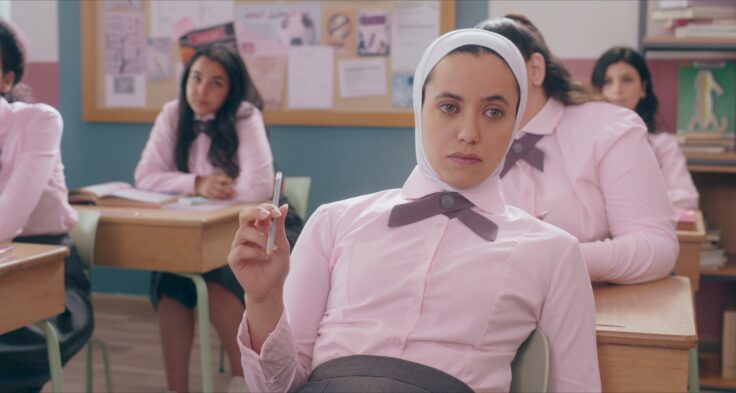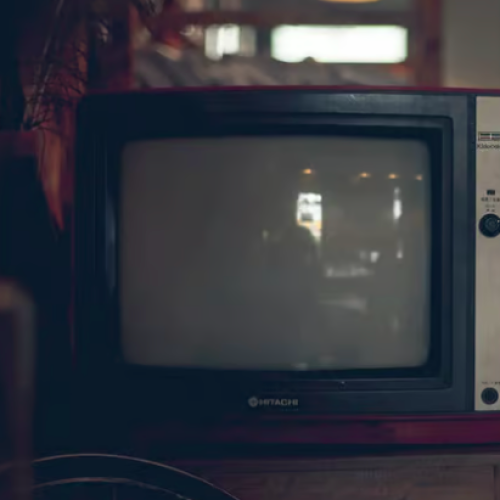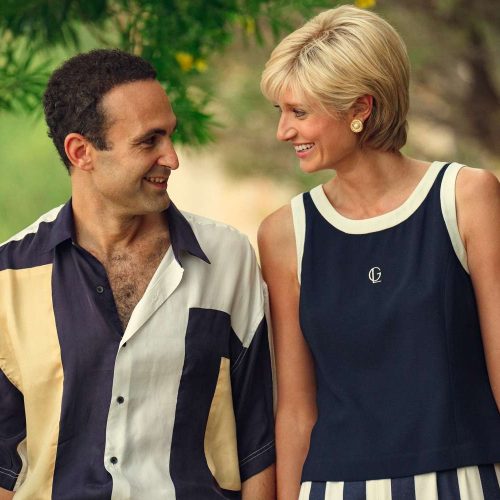Arab teenage dramas might just be our new favourite television genre. The release of AlRawabi School for Girls is certainly making the case.
Last month saw the new Netflix Arabic original series hit screens all over the globe. The show, which was created by Tima Shomali and Shirin Kamal consists of six episodes—a limited series that trails the lives of young high school girls in Amman. Its brilliant cast? Andria Tayeh, Joanna Arida, Noor Taher, Rakeen Saad, Salsabiela and Yara Mustafa, all. Of course, as all high school centric series go, it wasn’t short of drama. Describe as an Arab Mean Girls, if you will. If not, maybe an Arab Gossip Girl.
The plot largely focuses on a group of three girls and their plot of revenge on their bullies, all taking place in Al Rawabi, an all-girls private school in the Jordanian capital. Almost as soon as it dropped, the show made headlines. It was also at the receiving end of major praise for its writing, cinematography and overall production value. For many Arabs, it was the show’s subtle social and cultural elements that made it resonate the most. But you certainly don’t have to be Arab to quickly recognize a quintessential mean girl. Bullying, sexual harassment, mental health and patriarchal attitudes are globally recognizable too, all issues explored in the show.
But much like its predecessor, Netflix’s Jinn (which was also Jordanian), it’s these exact elements that also caused the show to be at the receiving end of criticism. Al Rawabi School For Girls was deemed by some to be ‘unrepresentative’ of Jordanian society, even far too Western-influenced.
Al Rawabi School for Girls is not accurate, girls in Amman are way meaner.
— Nooran A. (@nooranhamdan) August 20, 2021
This week, Jordanian MP Saleh Al-Armouti became one of the show’s biggest critics, arguing that the series shouldn’t have been granted licenses to film in Jordan to begin with.
“Do the government and the regulatory authorities in our country know that these films offend our Jordanian traditions and principles, spread moral and educational decadence, distort the image of the Jordanian girl, and offend school students across the Kingdom by facilitating the production and representation of such films and series and allowing them to be filmed in Jordan?” argued the minister.
The show’s creator, Tima Shomali quickly responded to the controversy. For her, criticism is an indicator of progress. In an interview on Amman TV, she said: ‘I am very happy that the series has created a dialogue, and for me this one of the most important indicators of success, if the series did not create this dialogue, then it wouldn’t have created an effect, and the idea of the series is that we want to make an influence.’
We decided to ask young Jordanians what they thought of the show. Should it be cancelled to appease the likes of Al-Armouti?
Zaid Masalha, 23
“Its accurate to the extent of modern, high-class schools in Jordan. Which there aren’t that many of. But for most of schools in Jordan it doesn’t portray the actual high school life that most Jordanians experience.”
Dania Sumeihat, 22
“I’d say they kind of watered down just how raunchy things can get in private schools in terms of and relationships and sex—which I’m not surprised they had to do after the Arab world’s reaction to Jinn.”
“People will feel threatened because keeping such issues swept under the rug is what maintains the facade of a functional society, but the more we talk about it the closer we get to fixing it!”
Darina Mohammed, 22
“In my opinion, speaking about the issue of bullying, obedience to the father and corruption within the educational institution was a wonderful job that deserves to be praised.
A quick search on Twitter on Al Rawabi School for Girls will expose you to countless other takes on the show.”









